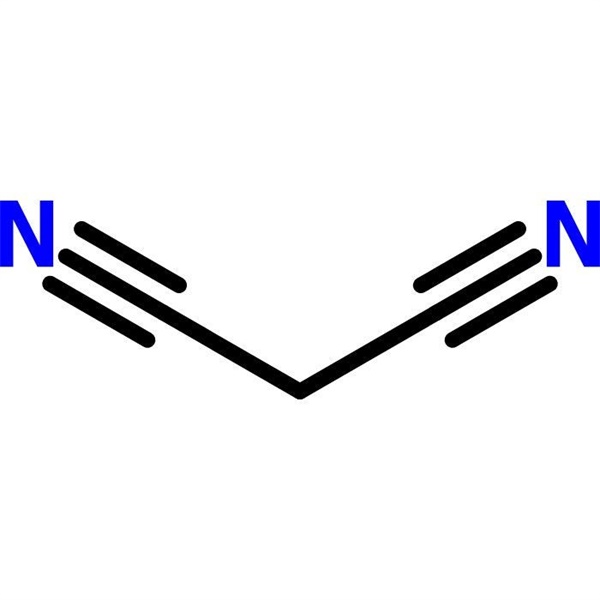Chemical Properties:
Package: Bottle, Aluminium foil bag, 25kg/Cardboard Drum, or according to customer's requirement. Storage Condition: Store in sealed containers at cool and dry place; Protect from light and moisture.Shanghai Ruifu Chemical Co., Ltd. is the leading manufacturer and supplier of Malononitrile (CAS: 109-77-3) with high quality, commercial production. We can provide Certificate of Analysis (COA), Safety Data Sheet (SDS), worldwide delivery, small and bulk quantities available, strong after-sale service. Welcome to order. Please contact: alvin@ruifuchem.com| Item | Specifications |
| Appearance | White or Colorless Crystalline Powder |
| Purity / Analysis Method | >99.0% (GC) |
| Melting Point | 30.0~34.0℃ |
| Moisture (K.F) | <0.50% |
| Residue on Ignition | <0.05% |
| Acidity | <0.50% |
| Infrared Spectrum | Conforms to Structure |
| Test Standard | Enterprise Standard |
| Usage | Pharmaceutical Intermediates |
Description:
Specifications:
Package & Storage:
| Chemical Name | Malononitrile |
| Synonyms | Malonitrile; Dicyanomethane; Propanedinitrile; Methylene Cyanide; Methylene Dicyanide |
| CAS Number | 109-77-3 |
| CAT Number | RF-PI1732 |
| Stock Status | In Stock, Production Scale Up to Tons |
| Molecular Formula | C3H2N2 |
| Molecular Weight | 66.06 |
| Boiling Point | 220℃ |
| Density | 1.049 g/mL at 25℃ (lit.) |
| Refractive Index | 1.4150 |
| Solubility | Very Soluble in Alcohol, Ether |
| Brand | Ruifu Chemical |
Advantages:
FAQ:
Application:
Malononitrile (CAS: 109-77-3) can be used as raw materials for organic synthesis, pharmaceutical intermediates and organic solvents. Malononitrile is an important building block for the syntheses of pharmaceuticals (e.g. triamterene, adenine and methotrexate), thiamin (vitamin B1), pesticides dyestuffs for color photography and synthetic fibers (e.g. vinylidene cyanide). Malononitrile is used as a reagent in the preparation of synthetic fibers, and is also an additive in lubricating oils/greases. Malononitrile's substituted analogues are most commonly used as reagents for the synthesis of anti-cancer agents. Used as lubricating oil additive; thiamine synthesis; anti-cancer agent synthesis; acrylic fiber and dyestuff synthesis. In life science industry, especially for synthesis of N-containing heterocycles; in production of herbicides.


